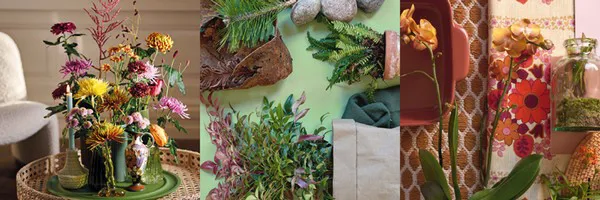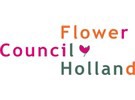Funding for Flower Council of Holland activities must be organized differently from January 1, 2024. Royal FloraHolland (RFH) has announced that it will stop collecting payment from supplying growers and buying traders as of that date. From that moment on, the Flower Council of Holland wants to organize its funding via a General Binding Declaration (GBD) that is financed by all companies. The sector must decide whether or not it wants to continue generic consumer promotion, research, and sector-related communication. Professionals from the sector can vote on this in the weeks ahead.
A GBD is the only way to maintain collectivity. Before being introduced, growers and traders will be asked for their opinion on the GBD. This can be done via an online vote between March 27 and April 7, 2023.

Consumers, campaigns, and knowledge
"In fact, it is about retaining the collective strength and knowledge accumulated in over 40 years of consumer promotion," says Yvonne Watzdorf (Managing Director of the Flower Council of Holland). "We collect knowledge about consumers, as well as their preferences and behavior, and translate this knowledge into creative campaigns and activities that stimulate demand for flowers and plants. And we do this in the most important European markets and high-potential countries. The ultimate goal is to encourage consumers to buy more flowers and plants more often. This is the essence of the work we do for the sector. We share our consumer knowledge and campaign materials with sector professionals so that everyone can benefit."
 Positive image of horticulture
Positive image of horticulture
A new development is that the Flower Council of Holland is now devoting more time and effort to# sector-related communication in order to better inform the general public about the craftsmanship and innovative strength found within all of these horticultural companies. "We can help to create a positive image of the sector by communicating about initiatives, results, and ambitions for a sustainable sector. Do we want to invest collectively in consumer communication, knowledge, and collaboration? That is the question at hand. "It's now or never," concludes Watzdorf.
Fairer competition
From January 1, 2024, Royal FloraHolland will stop collecting payment for the collective promotion of flowers and plants. The main objection of this auction organization is that an uneven playing field has developed because 'free riders' are benefiting from the added value of collective activities without also paying for it. The basic principle behind the GBD is that everyone contributes, including companies that do not supply to or buy their cut flowers or house plants from RFH auctions.
Refund scheme
The introduction of the GBD will therefore have financial consequences for companies that currently trade outside the auction, either in full or in part. To ensure that the financial transition will not be too dramatic, the decision has been made to give all growers and trading companies a refund of 15 percent of the total contribution to the Flower Council of Holland. This includes companies that currently trade and contribute entirely via RFH.
A new funding approach
In principle, the GBD will last for four years (2024-2027). An external administration office will be responsible for collecting payment and monitoring payment compliance. The GBD has proven itself as an effective system for organizing collective financing. In January, this
payment approach took effect for the Research and Innovation Knowledge in your Greenhouse (KIJK) program. As a result, over the next three years, all greenhouse growers in the food and ornamental horticulture sectors will be contributing to intercrop research for various innovation programs.
To measure the level of support for a GBD, the Flower Council of Holland is inviting growers and traders to vote on the introduction of a GBD from March 27 to April 7, 2023. Owners, directors, and major shareholders with voting rights can cast a vote via an online mailing from the independent research firm Motivaction. Once the results have been evaluated, the horticultural sector organization will submit the application for a GBD to the Ministry of Agriculture, Nature and Food Quality. The ministry will first submit the application to the European Commission for approval, after which a final decision will be made by the Minister of Agriculture, Nature and Food Quality.
A revamped Flower Council of Holland
Because the world and sector are rapidly changing, the independent Flower Council of Holland believes that its role must also evolve. "By continuing what's effective and changing what isn't," explains Yvonne Watzdorf. "We will continue to develop activation campaigns and inspire consumers in the main European markets via offline and online media. We will place even greater focus on collecting knowledge about consumers, as well as their preferences and behavior. And we will gladly share the resulting insights with growers and traders so that they can consider them when making decisions. We will stand shoulder-to-shoulder with others in the sector in order to better
communicate to consumers what horticulture is all about. This will benefit all sector professionals and help to realize a stronger horticultural sector."
"Knowledge that empowers"
"Reaching, inspiring and enticing consumers is an art in itself. The Flower Council of Holland has mastered this art," says John Zwaan, marketing manager of the Floral Trade Group, based on personal experience. "They speak the same language as consumers and master the communication channels. If the sector were to stop the generic promotion of flowers and plants, this would definitely lead to a decrease in demand," Edith Bentvelsen, director of Ter Laak Orchids, concurs. "Your activities have a much bigger impact if you work together. We focus on production and sales to trade channels. But connecting with consumers is another story. You want to know what is going on in the minds of consumers and how they make their decisions. So this requires research, and that is something you cannot do as an individual business professional. But the knowledge and insights of the Flower Council of Holland allow us to make our own informed decisions as a company. This really empowers us."
"Making collective progress"
At the same time, Zwaan has seen that horticulture-related marketing is gaining ground. "We need to do more than just supply products in order to fill shelves. Besides sales, we also need good marketing. The tools and experience of the Flower Council of Holland can help the sector to quickly and easily make progress on this front. This does not end with generic promotion but also includes new concepts, like via shopper activations. Companies that do this together with the Flower Council of Holland learn from their experience and continue their development in the field of marketing. Marketing is becoming increasingly professional, also in the horticulture sector. This is important because it helps the sector to improve in the long term."
"The Flower Council of Holland or every man for himself"
When it comes to the image of the horticultural sector among the general public, Zwaan and Bentvelsen see a clear role for the Flower Council of Holland. "The horticultural sector must be visible and communicate a clear image. Especially since we are currently under great scrutiny," emphasizes Bentvelsen. "There are a lot of positive aspects and fantastic, widely supported initiatives," adds Zwaan. "We all benefit from the consumer-related knowledge of the Flower Council of Holland, as well as the leading role it plays in sector-related communication. In other words, reason enough to keep the Flower Council of Holland going strong. After all, if this organization does not perform this role, no one else will, and it will be every man for himself."
For more information: Flower Council of Holland
Flower Council of Holland
www.bloemenbureauholland.nl
www.flowercouncil.co.uk
